How St Pauls Carnival is rooted in bringing people together
- Published
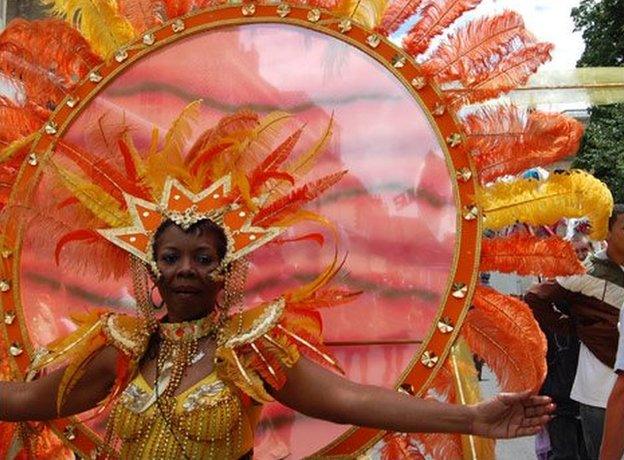
The carnival is similar to others around the country, such as Notting Hill Carnival
St Pauls Carnival in Bristol was founded almost 50 years ago to bring people together, but has been cancelled this year due to "ongoing challenges" faced by organisers. Here is a look back at its history.
The carnival started life as the St Pauls Festival in the 1960s.
Early immigrants from the Caribbean had settled in the St Pauls area of Bristol and were "unhappy with how they were perceived and treated by Bristol at large", according to the carnival's website, external.
The community had previously organised the Bristol Bus Boycott, in 1963, which overturned a ban on ethnic minorities working on Bristol's buses and is regarded as a milestone in achieving equality.
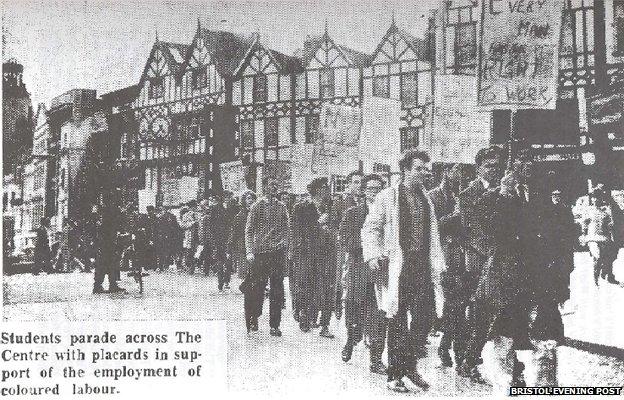
A newspaper cutting shows students marching in Bristol in protest against a "colour bar" on the buses
The community created the St Pauls Festival not only to gather and enjoy themselves, but also for other people to learn more about their culture.
There is disagreement over when the first festival was held, but Roy Hackett, one of the founders, said in an interview, external that the first one was in 1968.
Bristol's St Pauls Carnival attracts thousands of revellers
"At the very beginning we just wanted to do something to say thank you to our community, which at that time was St Pauls," he said.
"If somebody had come up with another idea like cutting the hedges, cleaning snow from doorways or doing the groceries we may have done that instead, but we came up with this and I thought it was a good idea because everybody could have a part in it."
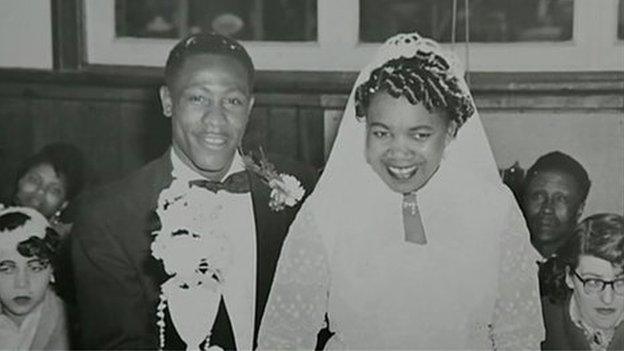
Roy Hackett, pictured on his wedding day, helped set up and run the St Pauls Festival
Similar festivals were created around the country at the same time, including Notting Hill Carnival in London.
Mr Hackett said there were only two floats at the first St Pauls Festival and it attracted between three and four thousand people, as "we were just testing it".
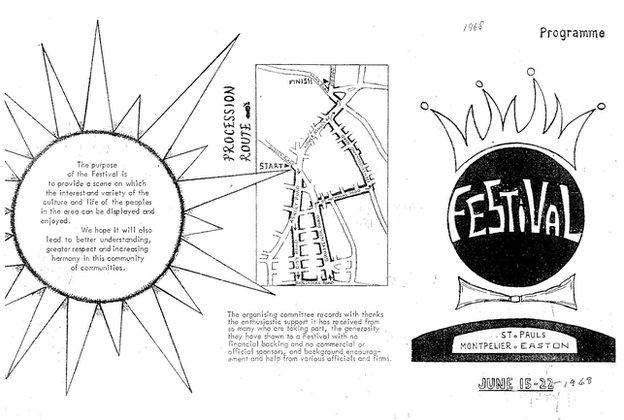
The 1968 festival programme said: "We hope it will also lead to better understanding, greater respect and increasing harmony in this community of communities."
The festival grew and is one of the biggest of its kind in Europe. Tens of thousands of people attended last year.
It became known as St Pauls Carnival, and most recently St Pauls Afrikan Caribbean Carnival.
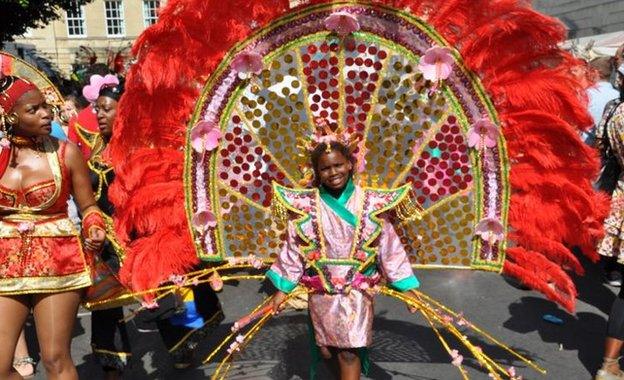
The event features music, dancing and food
Writing on the Bristol Culture website, Aisling Mustan said, external the carnival "has offered musical inspiration for hundreds of local acts" throughout the years.
Carnival acts have included The Wild Bunch, external, a sound system and collective of musicians and DJs which included Tricky and members of Massive Attack.
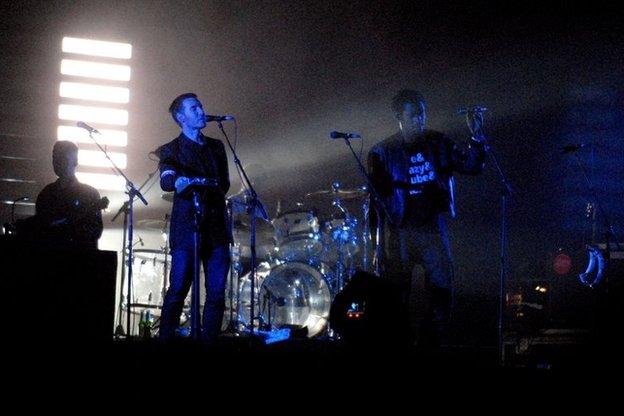
Carnival acts have included The Wild Bunch, whose members formed Massive Attack (pictured)
In the interview from 2012, external, Mr Hackett commented on organisational problems that have caused the the carnival to be cancelled in recent years, including in 2002, external and 2006, external.
"It is designed to bring people together and it did in the days we did it," he said.
"As the event approaches there is always a discussion whether they can afford to put it on. Sometimes it just scrapes through."
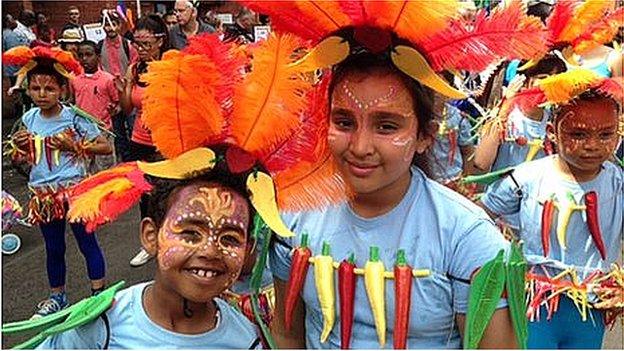
Organisers said there would be no large-scale street carnival this year
Although there will be no large-scale carnival event this year, the organisers said, external there would be a community showcase on 5 September.
"The organisation is working hard with funders and supporters to make sure we can deliver a successful Afrikan Caribbean Carnival in Bristol for many years to come," a statement said.
- Published26 June 2015
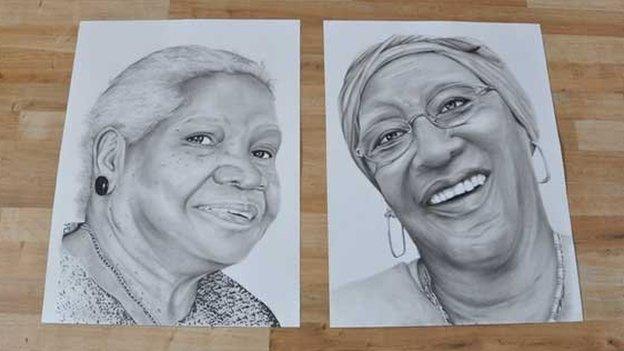
- Published26 June 2015
.jpg)
- Published2 May 2015
.jpg)
- Published5 July 2014
.jpg)
- Published4 July 2014
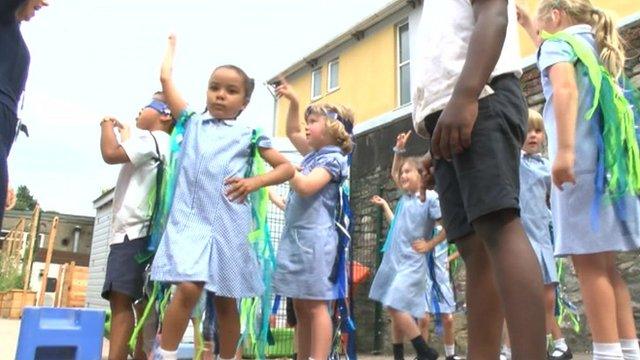
- Published6 July 2013
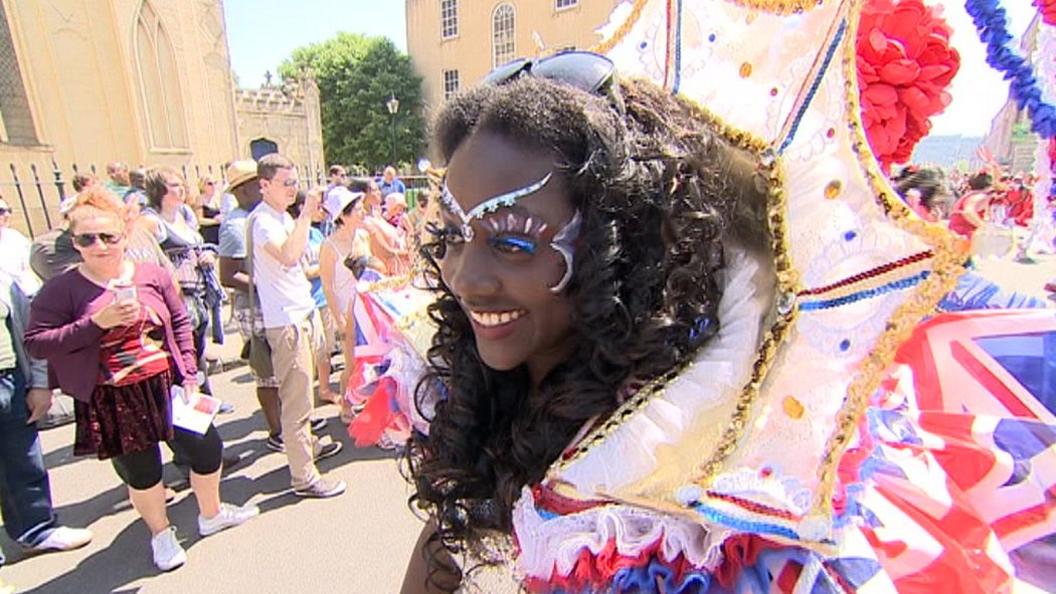
- Published11 January 2013
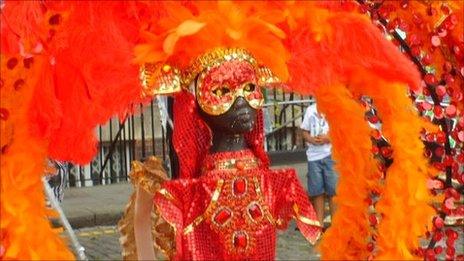
- Published3 July 2012
